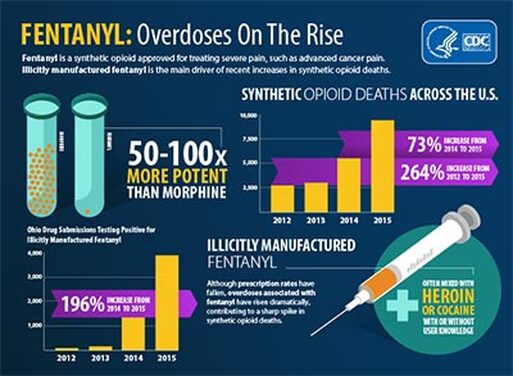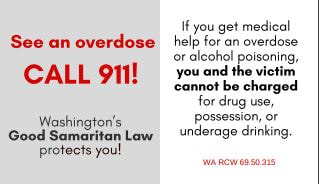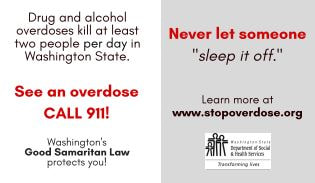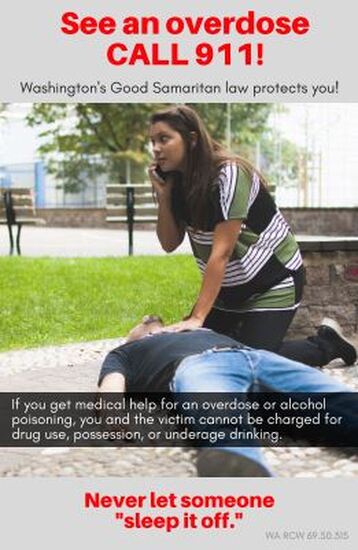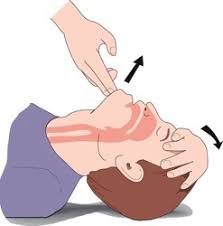More than one person dies each day from an opioid overdose in Washington State
Most of those deaths can be prevented , and it begins with YOU.
What causes an overdose?
When there is too much opioid in the body, a person can lose consciousness and stop breathing – this is an overdose. An opioid overdose can happen suddenly or come on slowly over a few hours. Without oxygen, a person can die.
Risks for an opioid overdose include:
Risks for an opioid overdose include:
- Using opioids again after your tolerance has dropped (e.g., like after being in treatment, a hospital, or jail). After a break from opioids, the body can’t handle as much as it did before.
- Taking prescription pain medication more often or in higher doses than prescribed-or using someone else’s prescription pain medication. The dose could be too much.
- Using heroin or pills bought on the street. Heroin and street pills often contain other substances that can be dangerously toxic - these are called synthetic opioids. Read more about fetanyl below.
- Using opioids with alcohol or other drugs including sleeping pills, benzodiazepines (“benzos” like Valium and Xanax), cocaine and methamphetamine.
- Any current or chronic illness that weakens the heart or makes it harder to breathe.
- Using opioids alone. You are more likely to die from an overdose if no one is there to help.
- Previous overdose. A person who has overdosed before is more likely to overdose again.


